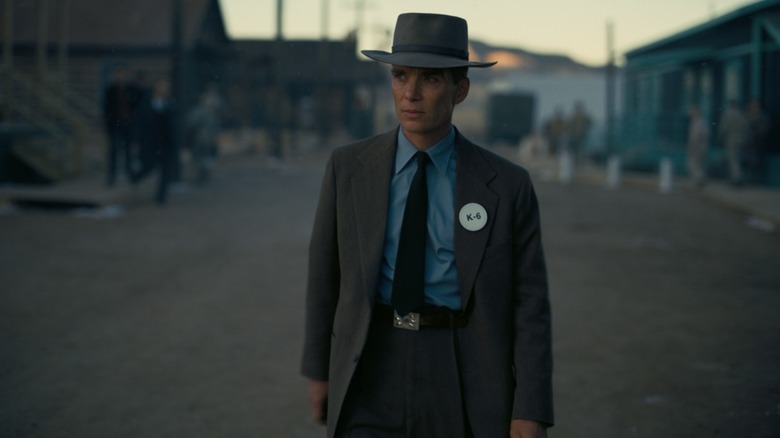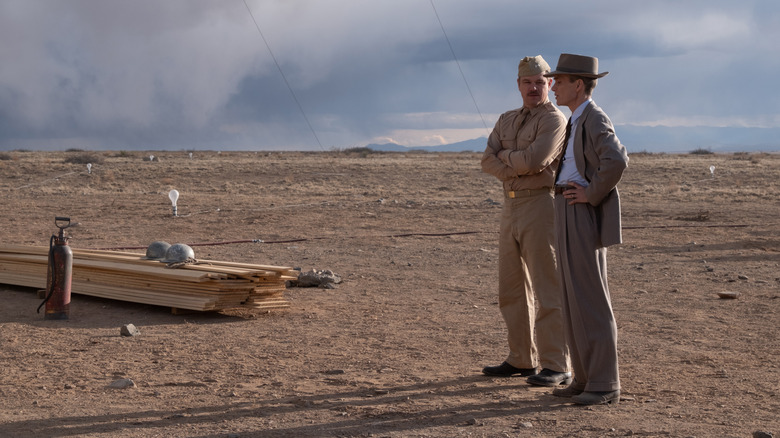How Mr. Rogers And Orson Welles Helped Prepare Cillian Murphy For Oppenheimer
"Oppenheimer" marked a few significant firsts for the main creative team involved in the film. After largely focusing on original concepts (outside of his franchise work on "The Dark Knight" trilogy, of course), Christopher Nolan pivoted towards a biopic centered on one of the most controversial individuals in American history. Similarly, star Cillian Murphy was tasked with portraying a historical figure for the first time in his career, accepting the added burden of responsibility in ensuring that his depiction of J. Robert Oppenheimer felt that much more lived-in and true to life. (In fact, I previously touched on this exact topic in a past interview with the actor for /Film, which you can read here.) When it came time to do his homework and find inspiration on how to bring to life the brilliant physicist behind the Manhattan Project, Murphy looked to some rather unexpected sources.
In a recent interview, the "Oppenheimer" star was asked about the challenges of channeling the distinctive voice he used for the role and the idea of trying to copy how the real-life Oppenheimer actually sounded. While an impersonation was the last thing on his mind, it turns out that Murphy and Nolan cast a wide net of references to pull from. Among them, apparently, were figures such as Orson Welles and, of all people, Fred Rogers. That's right, the creative team looked to America's patron saint of wholesomeness to help their portrayal of the "father of the atomic bomb." Who would've thought!
A less-than-beautiful day in the neighborhood
You may have noticed over the years that, despite his very distinctive appearance, Cillian Murphy has a history as a bit of a chameleon — even within his collaborations with Christopher Nolan alone. His various performances all stand apart from each other, utilizing several different accents and mannerisms to bring such characters to life. For the talented Irish actor, it's an underappreciated facet of his work and one that he really put the time and effort to get right in "Oppenheimer." In an interview with BBC Radio, Murphy revealed the rather surprising influences that went into how he ultimately figured out his voice as Oppenheimer:
"Well, from the beginning we didn't want to do an impersonation or an impression. That's not part of my skill set at all. However, he was very distinctive in the way he spoke and that kind of timbre and that pitch that he had. It's an accent you don't hear anymore in an American. You know, it's very kind of like Orson Welles, Mr. Rogers, kind of from that same world."
"He was a reference for us! Just in terms of the tone, really. I just spent a lot of time walking around in my basement talking to myself, you know? As you do."
It's not all that surprising the actor would look to older generations of American icons to model his take on Oppenheimer after their specific speech patterns, but it likely will raise a few eyebrows to hear that Mr. Rogers ended up on his mood board. But taken together with Welles, it does make a certain amount of sense when you go back and really listen to how they talked. It just goes to show that you never quite know where your research will lead.

